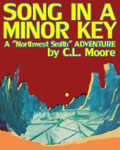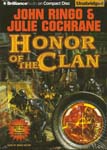

A few days ago the Canadian government’s copyright consultations site posted the audio from the Vancouver consultations. The audio |MP3| shows a wide variety of sensible copyright ideas. But the most pernicious was that of the Entertainment Software Association of Canada‘s 6 minute argument in favour of a more draconian version of the failed Bill C-61 from last year. Their spokesperson, Danielle LaBossiere Parr, argued along these lines…
Premise 1. The video game industry makes $2.2 Billion a year in Canada (if you include “hardware sales”).
Premise 2. The video game industry is extremely lucrative (“we had a record breaking year”).
Premise 3. There’s been a 300% increase in piracy (but video games “haven’t been affected” – and our research shows Canada is twice as bad as the USA).
Premise 4. DRM TPM is good. You don’t need to own or be able to control what we sell you (and we can’t provide essential services without it).
Conclusion: To avoid losing our $2.2 Billion a year business Canada has to make the breaking of DRM a statutory fineable offense and remove judicial oversight from corporate claims of copyright over materials in the public domain.
My analysis:
-Parr’s choice of Steam as an example of good DRM is interesting because it completely bypasses Canadian sales (being that it operates out of the USA and doesn’t collect PST or GST). Also, who knows what percentage of that $2.2B is hardware?
-Premise two seems to be in direct contradiction to premise three.
-Premise Four is the active portion of the argument. If you buy into the idea that TPM (DRM) is good for consumers you can accept it. If you like being prevented from using what you own you’ll like DRM.
-What Parr didn’t say in her speech is that the “entertainment software industry in Canada is export-intensive. Fifty per cent of firms rely on exports for 90-100% of their revenues, much of which comes from the United States.”* That surely doesn’t support her claim that the Canadian industry is threatened unless we make DRM breaking fineable. Her claim that TPMs facilitate “parental controls” and allow games to be distributed on a “trial or demo” basis is belied by the fact that such features have existed without invasive TPM/DRM.
Here’s her full speech (15:46 – 21:16):
“Thank you very much for hosting the consultation we’re very pleased to be at the table. And certainly Minister – took note of your comments this morning., I uh was at the digital forum and I know in a lot of the comments made there was ‘what about content? We need to deal with content’ So was encouraged to hear your comments that this is an important part of the overall digital strategy.
So here we’d agree – we’re here in Vancouver we are the largest, the largest hub for video game development in Canada. Canada in fact is the third largest producer of video games in the world. We are hitting well above our weight class, we are extremely successful and uh we are uh you know right behind Japan and the U.S. and if you look at on a proportional basis with our population it’s especially impressive. Um you know in Canada sales of entertainment software and hardware 2.2 billion dollars it was record breaking year and we’re continuing to see growth. So and I say that because our industry has huge potential for the Canadian economy and uh I think its important to … to think about that when you’re crafting policy to protect intellectual policy.
Um now you might also say, and we’ve heard this argument, ‘well you’re doing so well, why should we worry about you?’ But if you look at our online piracy statistics uh between 2007 and 2008 we saw 300% increase in online piracy. Uh, you know video games are we haven’t been affected as quickly perhaps as music and movies have in part because of our file size, they’re massive. And so as broadband speed catches up it becomes easier and easier to download games online so we really have to take action now action to prevent further harm to our industry.
When it comes to Bill-C61 we were actually really happy with the anti circumvention provisions of Bill-C61. You know certainly from our perspective our business is the sale of intellectual property, we don’t sell concert T-shirts, that sort of thing, we sell intellectual property and that is the backbone of our business and the only way we’re successful.. So certainly creating protection for digital locks is essential and uh we thought that C-61 did a good job at that. On the other side we felt that the ‘notice and notice’ regime in C-61 didn’t go far enough from our perspective. We would like to see ‘notice and takedown.’
And the reason for that is with sales of video games you look at Halo 2 for example, when it was launched, the vast majority of sales was in the first couple of weeks. It’s something like 80 or 90 percent of the sales are right around the launch date. So when a game is made available online, sometimes even before its released, there is a tremendous amount of harm that’s done in terms of sales to legitimate Canadian retailers and to the rights-holders as well. And so that’s why we think notice and takedown is necessary, because the time that you need to take to get an injunction, to have offending content removed, for example, notice and notice doesn’t compel them to remove the content. We feel that a notice and takedown regime would be in the best interest of video game publishers in Canada.
Um, the other thing the other point I’d like to make is that Canada, when it comes to video game piracy is disproportionate in terms of its offending. We did some research with gamers in both Canada and the US and we asked them the same questions. We found that 17% of U.S. consumers or U.S. gamers admitted to owning pirate product. Whereas 34% of Canadians gamers said the same. So it’s double the rate of piracy in Canada. Um, so it’s time to act now I mean certainly circumvention devices and protecting TPMs its allowing content owners to choose the business model that makes sense. And ultimately the market will decide if they don’t think that TPMs are fair or that they don’t like the way the service is being provided ultimately consumers will decide. And the business model will be adapted. But we really do have to offer protection under the law for digital locks or TPMs and allow consumers really to decide.
In terms of the video game example, I’ll sort of conclude I know I’ve talked a lot. Um, we’ve used TPMs in a number of ways. It’s not just preventing piracy, but it’s also allowing more choice for consumers in the sense that … no, services like Steam, for example, that allow you to have a subscription, essentially, to a video game. You can login when you’re traveling, from this computer, or you can login from your home computer, as opposed to only being to access the game when its downloaded on your home PC for example. That’s facilitated by DRM. Um same thing when it comes to parental controls.
So you know if you want to restrict, not allow your kids to play M-rated games for example. Or in World Of Warcraft you don’t want your kid more than 6 hours a week time all of those things are facilitated by DRM. And finally so time trials and VIP areas of sites and allowing people to try before they buy – all thiose jkinds of things that are really beneficial for consumers. Uh you know I think the video game industry has done a real good job of using DRM in a positive way. Thank you.”
There’s also an official transcript |HERE| it includes all the other speakers as well.
Posted by Jesse Willis

 Song In A Minor Key
Song In A Minor Key









